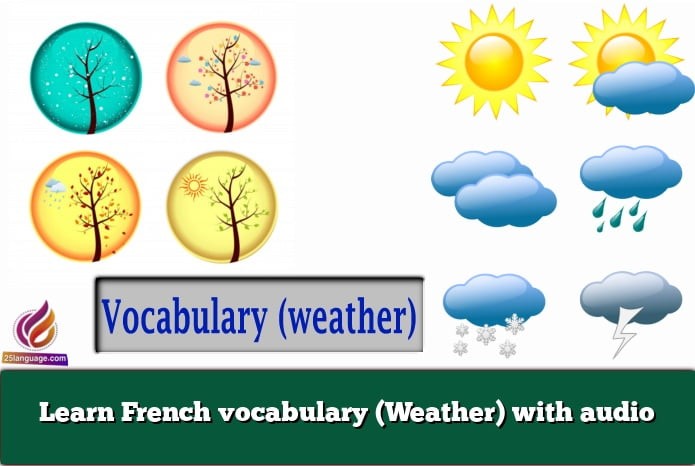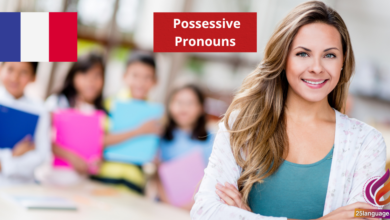French Modal Verbs

Imagine being able to express wishes, obligations, and possibilities all in one language. In today’s lesson, we dive into the world of French modal verbs: pouvoir, vouloir, and devoir. Thes essential verbs will empower you to navigate conversations with ease, allowing you to ask for permission, express desires, and discuss responsibilities. Get ready to unlock a new level of fluency in French as we explore how these versatile verbs can transform your speaking skills!
understanding French Modal Verbs: Mastering Pouvoir, vouloir, and Devoir
In French, the modal verbs pouvoir (to be able to), vouloir (to want), and devoir (to have to / must) play a crucial role in expressing ability, desire, and obligation. These verbs are often used in conjunction with an infinitive verb to convey specific meanings. Here are some key points to remember:
- Pouvoir is used to express ability or permission.
- Vouloir conveys desire or a wish.
- Devoir indicates necessity or obligation.
Such as:
- Pouvoir: “Je peux parler français.” (I can speak French.)
- Vouloir: “Je veux manger une pomme.” (I want to eat an apple.)
- Devoir: “Je dois étudier pour l’examen.” (I must study for the exam.)
| french Example | Verb | English Translation |
|---|---|---|
| Je peux finir mes devoirs. | Pouvoir | I can finish my homework. |
| tu veux aller au cinéma. | Vouloir | You want to go to the cinema. |
| Ils doivent partir maintenant. | Devoir | They have to leave now. |
Exploring the Functions of Pouvoir, Vouloir, and Devoir in Everyday Conversation
The verbs pouvoir (to be able to), vouloir (to want), and devoir (to have to/must) are essential in expressing ability, desire, and obligation in French conversation.Each of these verbs is irregular and is used in different contexts to convey specific meanings. Here are some crucial points to remember:
- Pouvoir: Used for expressing ability or permission.
- Vouloir: Indicates a wish or desire.
- Devoir: Represents necessity or obligation.
For example:
- Pouvoir: Je peux venir à la fête. (I can come to the party.)
- Vouloir: Je veux un café, s’il vous plaît. (I want a coffee, please.)
- Devoir: Je dois étudier pour l’examen. (I have to study for the exam.)
| French Example | Meaning |
|---|---|
| Je peux parler français. | I can speak French. |
| Tu veux aller au cinéma? | Do you want to go to the cinema? |
| Ils doivent faire leurs devoirs. | They must do their homework. |
Practical Applications of french Modal Verbs in Various contexts
In French, modal verbs convey the speaker’s attitude toward the action of the main verb. The most common French modal verbs are devoir (must), pouvoir (can), and vouloir (want). These verbs can be used in various contexts to express obligation, ability, and desire.For example, to express obligation, one might say Je dois finir mes devoirs avant de sortir. (I must finish my homework before going out). To indicate ability, the phrase Elle peut jouer du piano. (She can play the piano) shows what someone is capable of doing. Similarly, expressing desire can be illustrated with Nous voulons aller au cinéma ce soir. (We want to go to the cinema tonight).
It’s essential to note how these modal verbs interact with the infinitive form of the main verb. When using modal verbs, the main verb remains in the infinitive form, which means it does not change according to the subject. Here’s a table summarizing some practical examples:
| French Example | Rule | English Translation |
|---|---|---|
| je dois étudier pour l’examen. | Use of devoir to express obligation. | I must study for the exam. |
| Ils peuvent venir à la fête. | Use of pouvoir to indicate ability. | They can come to the party. |
| Tu veux acheter une voiture. | Use of vouloir to express desire. | You want to buy a car. |
Enhancing Your French Communication Skills with Pouvoir, Vouloir, and Devoir
To communicate effectively in French, it is essential to master three modal verbs: pouvoir (to be able to), vouloir (to want), and devoir (to have to/must). Each of these verbs conveys different meanings regarding capability, desire, and obligation. Here are some key points about each verb:
- Pouvoir: Used to express ability or permission.
- Example: Je peux parler français. – I can speak French.
- Example: Est-ce que je peux sortir? – Can I go out?
- Vouloir: Expresses a wish or desire.
- Example: Je veux une pizza. – I want a pizza.
- Example: Nous voulons voyager. – we want to travel.
- Devoir: Indicates necessity or obligation.
- example: Je dois étudier pour l’examen. – I must study for the exam.
- Example: Ils doivent finir leur travail. – They have to finish their work.
| French Example | Rule | English Translation |
|---|---|---|
| Je peux danser. | Pouvoir – Ability | I can dance. |
| Tu veux aller au cinéma. | Vouloir – Desire | You want to go to the cinema. |
| Elle doit terminer son projet. | Devoir – Obligation | She must finish her project. |
In Conclusion
Bien joué, tout le monde! As we wrap up our lesson on the French modal verbs “pouvoir,” “vouloir,” and “devoir,” let’s take a moment to recap the key points we’ve covered today.
These essential verbs allow you to express abilities, desires, and obligations in French, enabling you to communicate more effectively and confidently. “Pouvoir” empowers you to articulate what you can do, “vouloir” helps you express your wishes and preferences, and “devoir” introduces the concept of necessity and obligation. Remember, mastering these verbs is crucial for constructing meaningful sentences and expressing a wide range of thoughts and feelings.
Now that you have a solid understanding of how to use these modal verbs, I encourage you to practice integrating them into your conversations. Whether it’s discussing your weekend plans, expressing your goals, or describing your daily routines, try to incorporate “pouvoir,” “vouloir,” and “devoir” as much as you can. The more you practice, the more natural it will become!
Don’t hesitate to create your own sentences, engage with fellow learners, and seek opportunities to use French in real-life scenarios. Every effort you make will build your confidence and improve your language skills. Remember, learning a language is a journey, and you are making fantastic progress!
Continue embracing the challenge, and I look forward to seeing how you incorporate these modal verbs into your French conversations. À bientôt et bon courage!




























